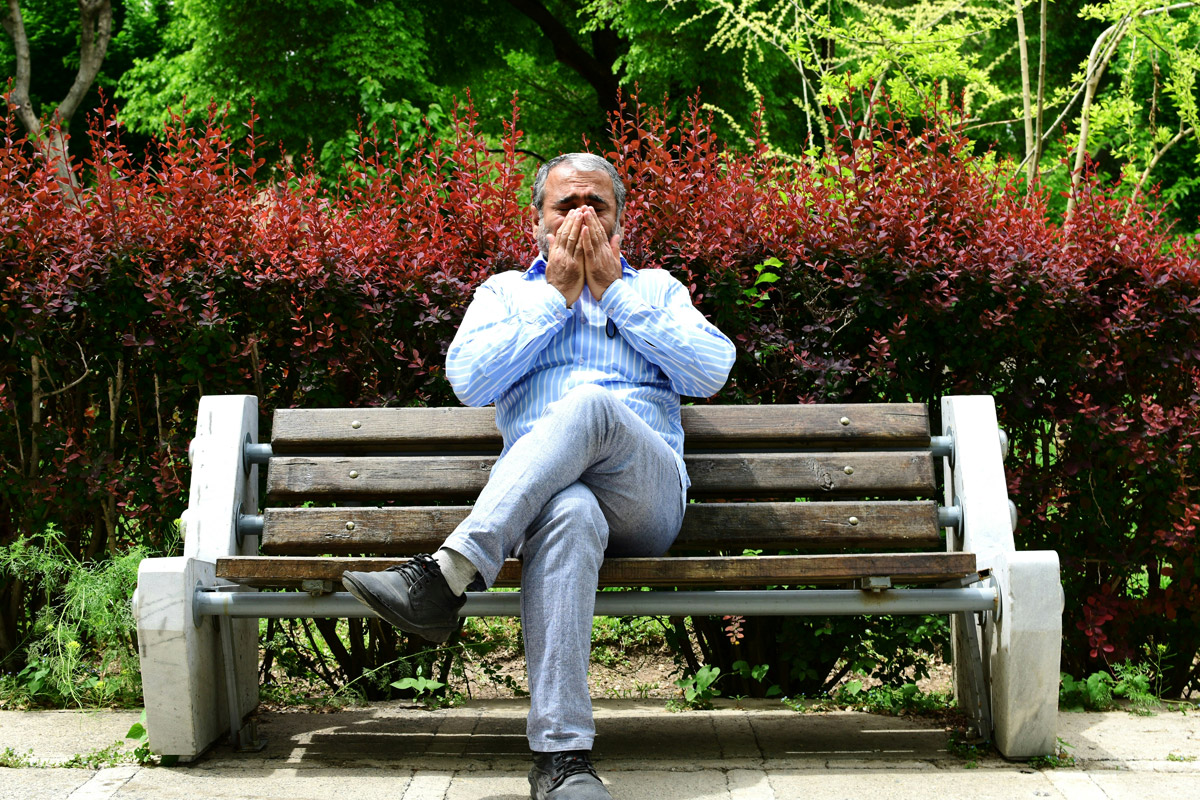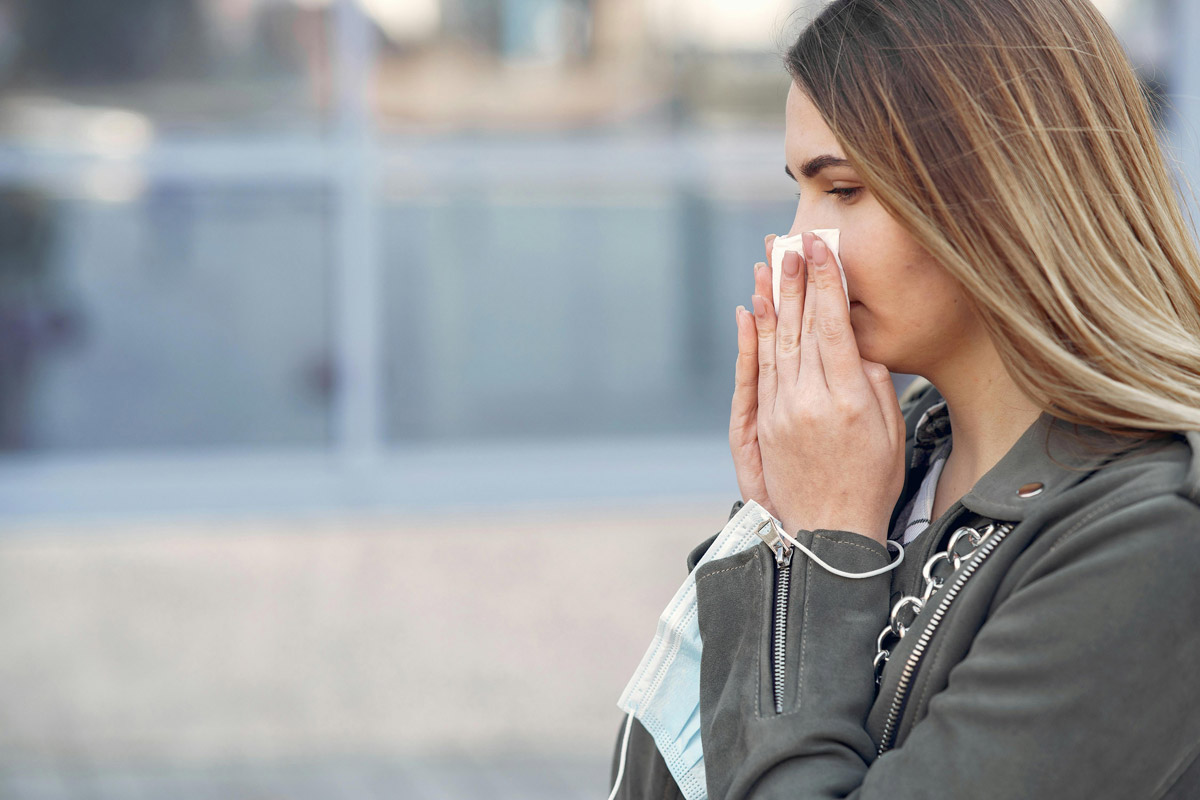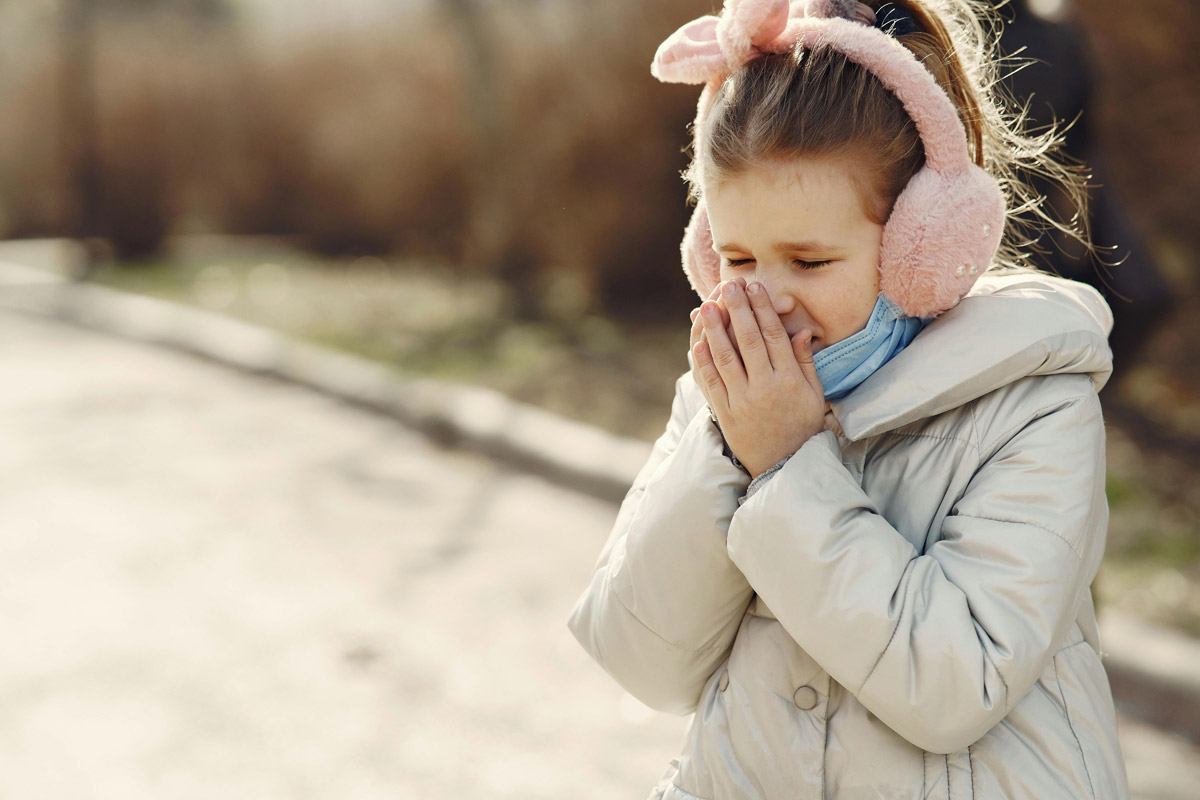
Do you have a habit of sneezing when stepping out into the sun? It happens to 35% of the population and has apparently been around since pretty much the dawn of time. The phenomenon is alternately called The Photic Sneeze Reflex, or (because we have scientists with funny bones) Autosomal-dominant Compelling Helio-Ophthalmic Outburst, the acronym for which is, ACHOO. Perfect, no notes. With the basic function of a sneeze being to expel irritants or infectious agents upon exposure, the question doctors have been puzzling over is: why would sunlight provoke such a response from the body? The answer, my friends, is flowin’ in the genes. The answer is flowin’ in the genes.
ACHOO across history: It was first observed by Aristotle in the fourth century BC, who answered a question (erroneously): “Why does the what of the sun provoke sneezing and not the heat of fire? A. Because the heat of the sun doth dissolve, but not consume, and therefore the vapour dissolved is expelled by sneezing.” This was later disproved by Francis Bacon (who was a sun sneezer) in the 17th century, after he faced the sun with his eyes closed, and didn’t sneeze. Many other superstitions and theories came over the years, including one that cavemen sneezed when they saw the sun because it helped clear the dust from their respiratory system while they’d slept in a cave.
It’s in our genes: Most doctors believe it is a genetic condition. And if one parent has Achoo syndrome, the child typically has a 50% chance of contracting it. … The gene can lurk for generations before emerging again. In terms of causal mechanisms, the most commonly accepted theory is a hypothesis proposed by Dr. Henry Everett, who first called it light-induced sneezing, or The Photic Sneeze Effect. He suggested it is likely a confusion of nerve signals which includes the sneezing. Your body’s reaction to the sun is similar to its reaction to plucking an eyebrow or pulling a single hair—both trigger the trigeminal nerve. In this case, it’s your body misinterpreting this signal. When you see the sun, instead of telling you to squint your eyes, your body tells you to sneeze.
Other factors: Also, your odds of sneezing are strongly correlated to having a deviated septum… Demographics also play a huge role. One study found that among 500 people who identified as photic sneezers, 67% were female and 94.3% were white. Among them, 90.7% reported sneezing three or fewer times when exposed to the sun at an interval of fewer than 19 seconds between sneezes. If you are sneezing a dozen times or more in a row, it might be worth seeing a doctor over what’s causing it.
How to treat it: The only known medical treatment that will reduce the presence of photic sneezing is the use of antihistamines—but this is usually only effective if you already have allergies. … There’s also another hands-on trick that some people swear by, where you touch the spot just below your nose, and above your upper lip right when you’re about to sneeze. … Per Dr. Anuradha Duleep, you should press down for a moment, and you’ll block a branch of the trigeminal nerve and reroute the signal that was making you sneeze.
Ugh, if I had a nickel for every time the culprit turned out to be the trigeminal nerve… But no really, the explanation to all this is that wires are getting tripped? I mean, I guess it’s not all that surprising, but there is something endearingly comic about it. Not so much sneezing at the sun, but I can easily imagine a sitcom writer taking this idea and heightening the scenario. Or maybe someone already did, and it’s Modern Family writer Jason Winer, who wrote/directed the 2019 film Ode to Joy, based on a true story of a man with cataplexy that causes him to pass out when he feels strong emotions. My point is, the ins and outs of the human body can be so wacky sometimes, you just have to laugh (if only to keep from crying). So I don’t believe in “intelligent design,” (see: everything above), but I would entertain the notion of “hysterical design.”
Oh, and another thing to try if you have ACHOO, is to wear dark sunglasses and/or a protective hat. It can lessen the intensity of stepping into the sun, so that darn trigeminal nerve won’t be set off. Hopefully.
photos credit: Mohammad Hosein Safaei and Liang Zi on Unsplash, Gustavo Fring on Pexels














Kismet, my husband has ACHOO (adorable) and I’ve shared this article with him. I’m curious to know if pressing the nerve will work for him.
We’ve always laughed that the syndrome kept him from being a spy. At least in sunny countries.
That is hilarious
My sister kept telling me the sun makes her achoo evertime she sat in her car on sunny days, all those times I rolled my eyes and told her that she was full of sht and it was just another attempt for attention. 😂
I start gagging if I go between two extreme temperatures. Usually between heated air and cold outside.
I have ACHOO. Every time I step outside I sneeze anywhere from 5-10 times. I’ll see if pressing between my lip and my nose works and I’ll report back.
I have ACHOO and I have a question for my fellow sufferers: Are you able to predict you have an cold (because you go out in the sun and, meh, you don’t sneeze) and also able to predict when you are getting over a cold (because you have that urge to sneeze and actually sneeze when in light)? Also, I thought that COVID sort of shut it down for months, and was relieved when it came back.
Another ACHOO sufferer, I think.
I have *so many* allergies to different kinds of pollen that we were never actually sure though whether the sun was the culprit — or grass, pine, rapeseed, hazel, birch, basswood…
I’ve tried that trigger point method of pressing between lip and nose, and it didn’t work. So maybe it’s the allergies after all?
I have ACHOO, and I sort of love it. My “sun sneezes” are always my most extra-satisfying sneezes!
Same. Usually just once or twice. 😊 My brothers, too.
SAME!! So satisfying. But it’s always three. Always.
I was the only one in my family, until my Kiddo turned up doing the same thing. My husband thinks it’s really funny when the two of us step outside and start sneezing in tandem.
I sneeze every morning when I get up! I usually don’t see the sun yet but sometimes I do. Live in an old dusty house. Also sneeze when plucking eyebrows! Fun.
I have a friend who has this and when she starts sneezing when we step outside you know it’s going to be a great sunny day ! More seriously she always says that sunglasses are the only solution for her.